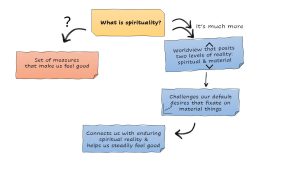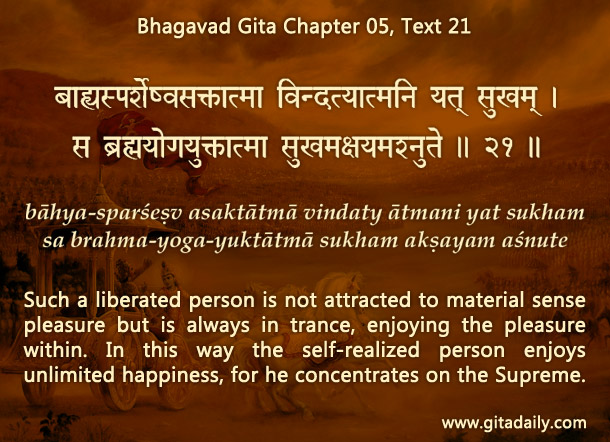 Given that contemporary life subjects us to spiraling levels of stress, and spiritual practices such as meditation are known to provide non-intrusive stress relief, spirituality is nowadays becoming increasingly acceptable and even respectable. While this rise in spiritual openness is good, it does run the danger of reductionism, wherein spirituality is seen as nothing more than a set of measures for calming our emotions.
Given that contemporary life subjects us to spiraling levels of stress, and spiritual practices such as meditation are known to provide non-intrusive stress relief, spirituality is nowadays becoming increasingly acceptable and even respectable. While this rise in spiritual openness is good, it does run the danger of reductionism, wherein spirituality is seen as nothing more than a set of measures for calming our emotions.
Actually, spirituality is an entire worldview, not just a bunch of anodynes that we take while holding on to any worldview, typically a materialistic worldview. And a spiritual worldview doesn’t just calm our feelings; it challenges our desires about what will do good. Fundamentally, a spiritual worldview posits that reality has two major levels: material and spiritual (Bhagavad-gita 02.16). Material reality is constantly changing, thereby leading us to anxiety about the inevitable deterioration and destruction of the material things that we may be attached to. In contrast, spiritual reality is ever enduring, thereby providing our consciousness a focus that can provide stability, security and even serenity. Because spiritual practices bring our consciousness in contact with a reality firmer than material reality, they make us feel good.
However, our contact with spiritual reality can’t endure if our desires are still fixated on the material. Not only do worldly desires disconnect us from the spiritual, they also set us up for agitation and frustration due to the temporariness of all material things. That’s why we need to challenge such desires and redirect our power to desire from the material to the spiritual. Only then can our actions do good, both for ourselves and others — — thus, we can feel good in a way that is not moody, but is steady (05.21).
One-sentence summary:
Spirituality is not just about calming our emotions so that we feel good; it is primarily about challenging our desires so that we do good.
Think it over:
- What’s wrong with seeing spirituality as a means to calm our emotions?
- Why does spirituality challenge our desires?
- How can challenging our desires benefit us?
***
05.21: Such a liberated person is not attracted to material sense pleasure but is always in trance, enjoying the pleasure within. In this way the self-realized person enjoys unlimited happiness, for he concentrates on the Supreme.
To know more about this verse, please click on the image


The soul emancipates, but the body is caged.